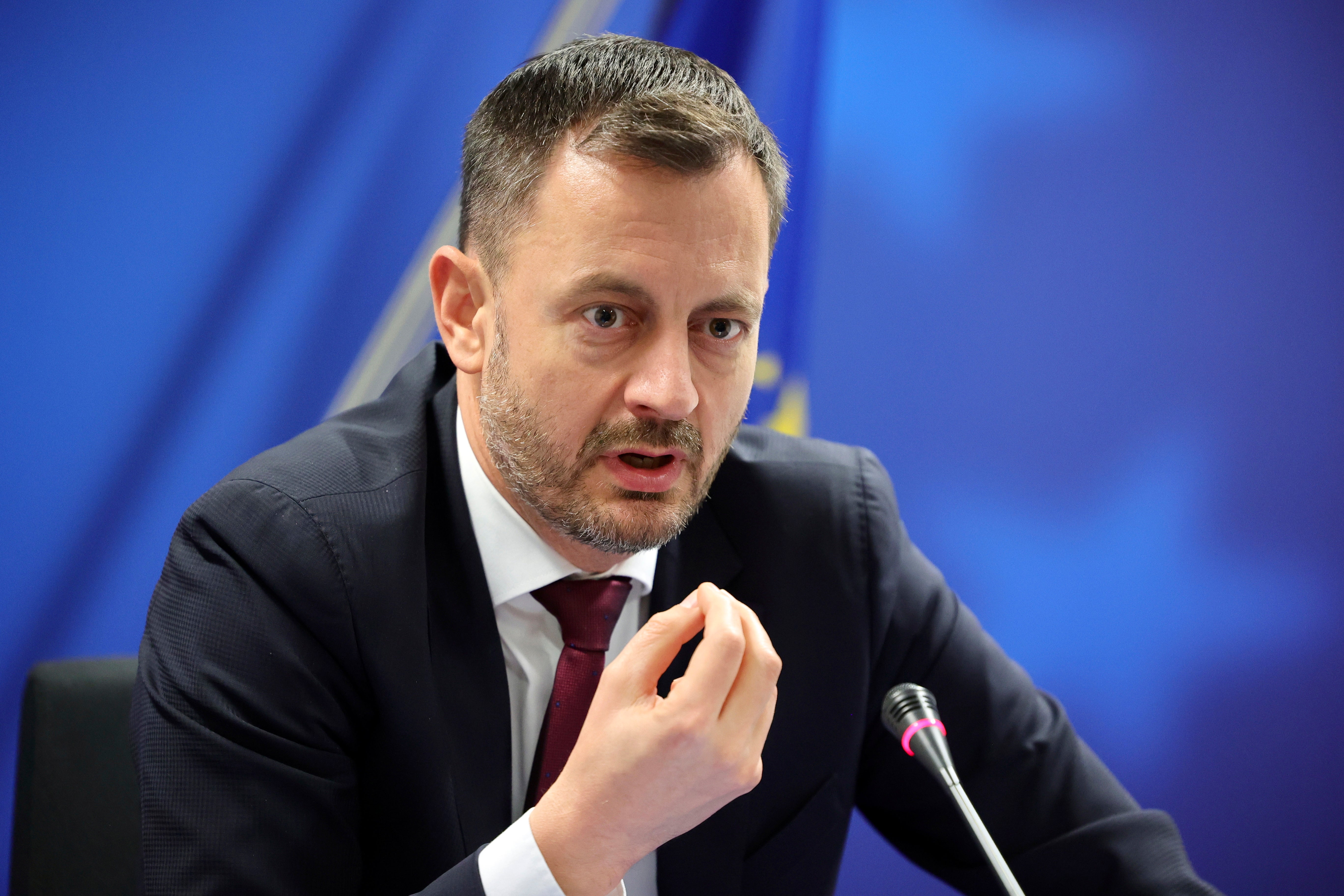Slovak government faces parliamentary no confidence vote
Lawmakers in Slovakia have started debating a parliamentary no-confidence vote against the country’s coalition government in a move that could threaten Prime Minister Eduard Heger’s minority Cabinet

Lawmakers in Slovakia began to debate a parliamentary no-confidence vote against the country's coalition government on Thursday in a move that could threaten Prime Minister Eduard Heger’s minority Cabinet.
The opposition liberal Freedom and Solidarity party, which requested the vote, withdrew from the coalition government in September.
Freedom and Solidarity head Richard Sulik accused the government of incompetence and losing its anti-corruption drive.
The opposition needs to secure 76 votes in the 150-seat Parliament to topple the government. A vote is expected on Tuesday.
Freedom and Solidarity said before its departure from the government it wasn’t willing to stay because of disagreements with Finance Minister Igor Matovic, a populist leader whose Ordinary People party won the 2020 parliamentary election.
Sulik clashed with Matovic on a number of issues, including how to tackle soaring inflation driven by high energy prices amid Russia's invasion of Ukraine. They also disagreed on how to respond to the coronavirus pandemic.
Freedom and Solidarity had given Prime Minister Heger a deadline until the end of August to reshuffle the Cabinet and rule without Matovic, saying that otherwise its four ministers would resign.
Matovic’s Ordinary People party rejected that option.
After winning the election on an anti-corruption ticket two years ago, Matovic struck a deal to govern with Freedom and Solidarity, the conservative For People party, and We Are Family, a populist right-wing group that is allied with France’s far-right National Rally party.
The government made fighting corruption a key policy issue.
But amid the coronavirus pandemic last year, the government collapsed as Matovic was forced to resign as prime minister after he orchestrated a secret deal to acquire 2 million doses of the Russian-made Sputnik V vaccine despite disagreement among his coalition partners.
The same four parties formed a new government under Heger, who is a close ally of Matovic’s and the deputy head of his Ordinary People party.
The current Slovak government has been donating arms to the Ukrainian armed forces while opening its border to refugees fleeing the war with Russia.
Bookmark popover
Removed from bookmarks